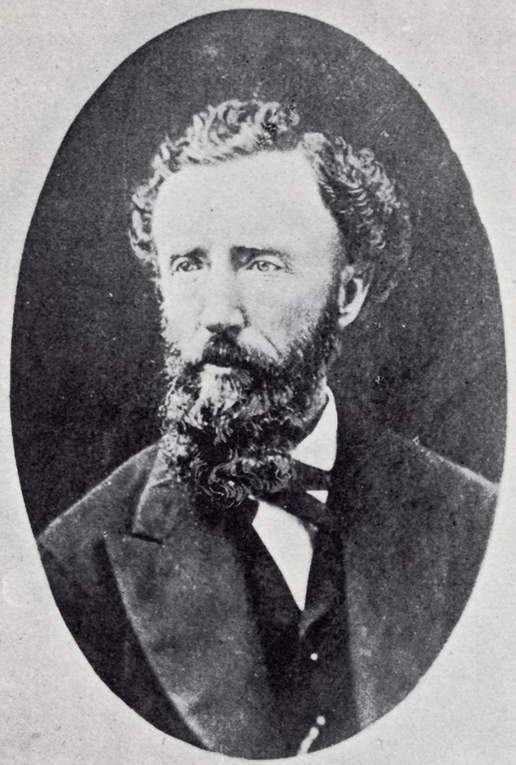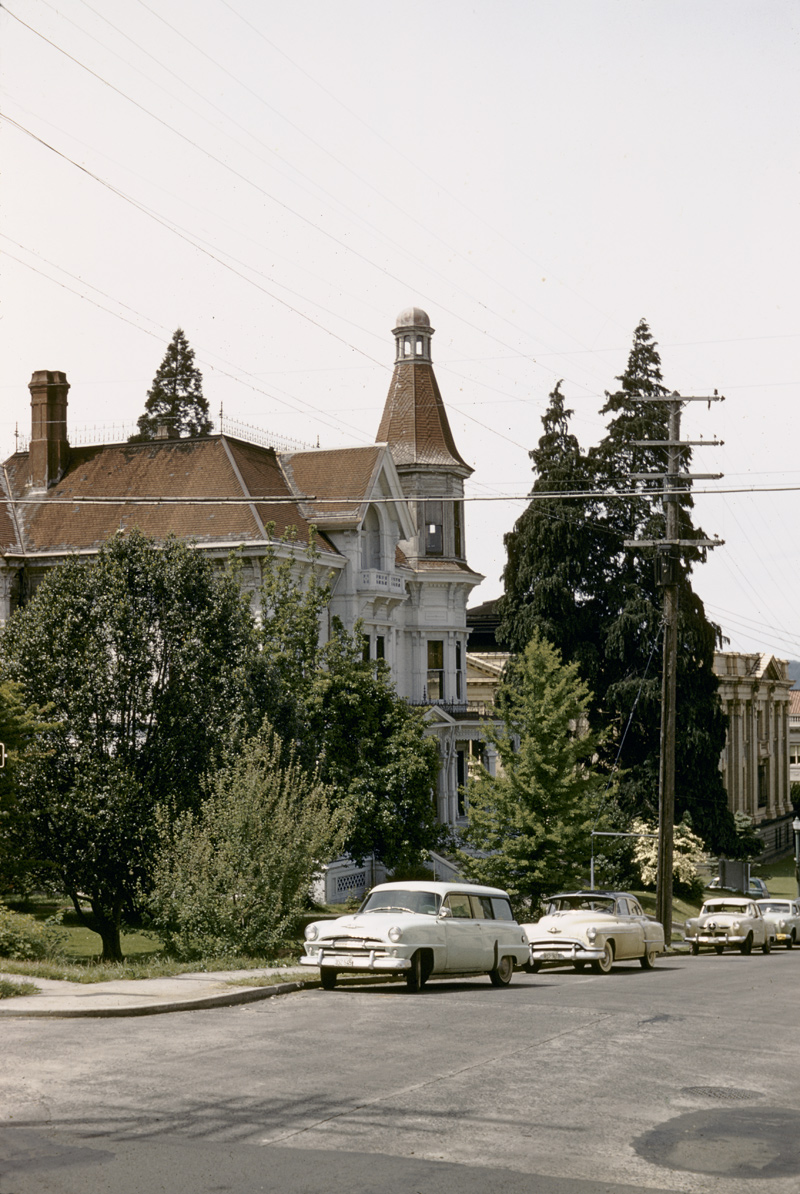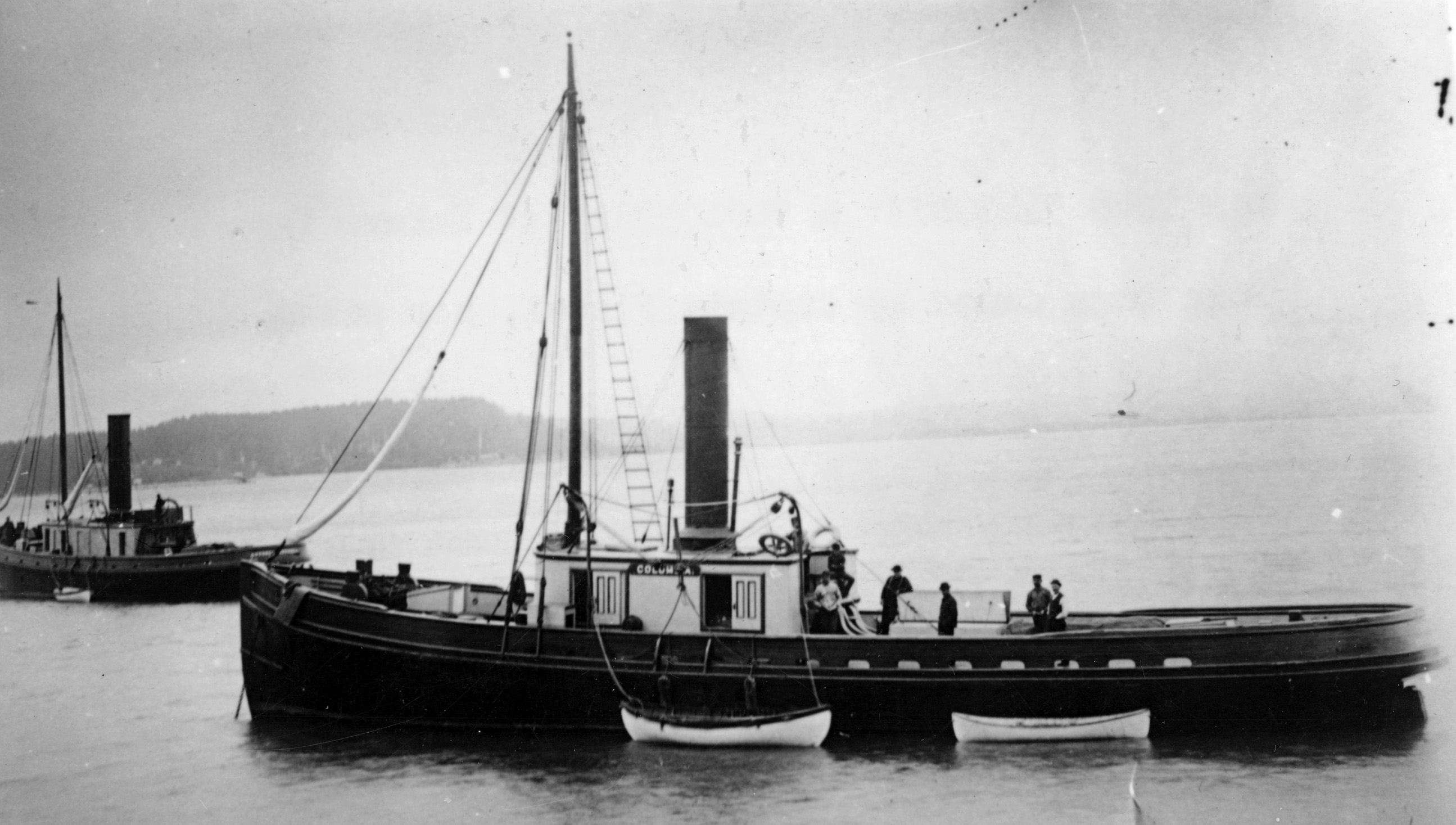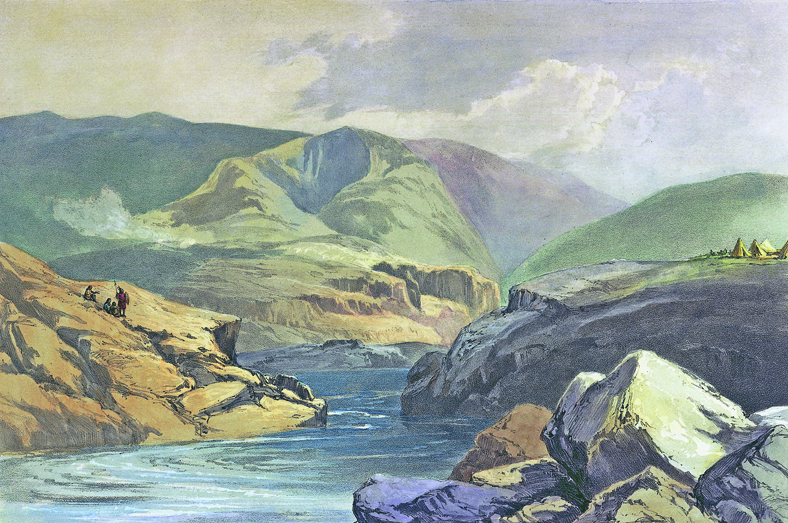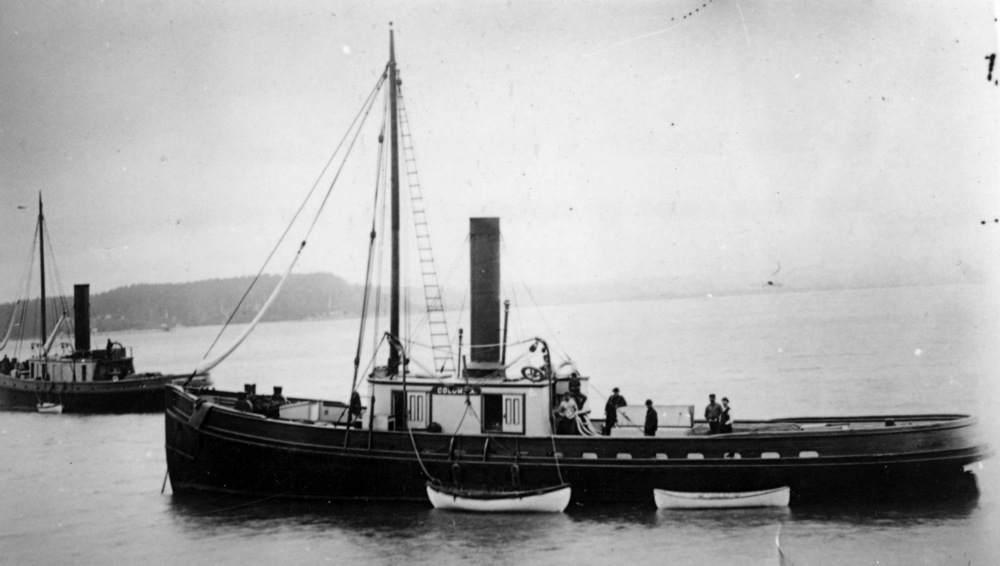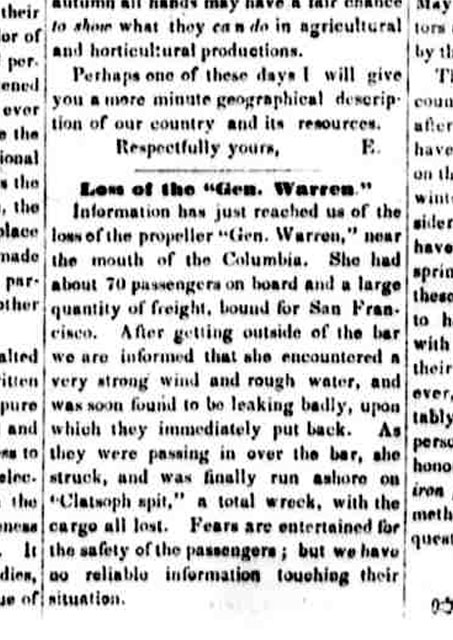As a young man in 1849, George Flavel made his way to Astoria after a stint as captain of the brig John Petty. He sailed around Cape Horn and spent time in California during the Gold Rush years. As a result of his work as a sea captain and businessman, he was one of the richest men in Oregon. He is remembered for his generosity but also for his efforts to make the City of Astoria an important shipping, salmon canning, trading, timber, and real estate center on the West Coast.
Flavel was born in 1823 or 1824 in Norfolk, Virginia. After earning his pilot’s license, he was able to guide ships from the Pacific up the Columbia to the Willamette River. Having the license permitted Flavel and his partners to establish a virtual monopoly on bar piloting and ship touring on the Columbia.
In December 1852, during a particularly strong gale, the General Warren lost its fore-topmast and sprang a leak, and its engine proved futile against the heavy seas near Astoria. Flavel was unable to rescue the Warren, and forty-two people aboard the ship perished. Nevertheless, his efforts to save the Warren made him a hero to the people of Astoria.
Flavel married Mary Christina Boelling in 1854 when he was thirty and she was fourteen. They had three children—Nellie, Katie, and George C. During their married life, as his business prospered, the Flavels divided their time between San Francisco and Astoria.
In 1869, Flavel and his partners built a steam tug, Astoria, and used it as a pilot boat. With a subsidy from the State of Oregon he was able to continue to dominate the piloting business. Some people were jealous of Flavel’s success. In 1875, William Reid—a lawyer, financier, and secretary of the Portland Board of Trade—challenged Flavel’s dominance of the piloting business on the Columbia. He alleged that Flavel charged monopoly rates for towing and piloting vessels across the Columbia River bar. Flavel saw that he needed to protect his reputation, and he began a vigorous effort in the Astoria newspaper to refute Reid’s claims. He was also successful in getting a bill killed in the Oregon legislature before it could harm his bar-piloting business.
In 1886, Flavel’s income from his business interests permitted him to build an elaborate 11,600-square-foot mansion at the corner of Eighth and Duane Streets in Astoria, which cost a reported $36,000. Flavel died at his Astoria home on July 3, 1893, after a long illness. His funeral procession was one of the largest ever reported in Astoria.
-
![]()
Capt. George Flavel.
Courtesy Clastop County Historical Society -
![Flavel House, Astoria, built in 1885]()
Flavel House, Astoria.
Flavel House, Astoria, built in 1885 Courtesy U. of Oregon digital archives, pna08215
-
![Bar tugs "Astoria" and "Columbia", both owned by bar pilot George Flavel at Baker Bay]()
Bar Tugs "Astoria" and "Columbia".
Bar tugs "Astoria" and "Columbia", both owned by bar pilot George Flavel at Baker Bay Courtesy Oreg, Hist. Soc. Research Lib. bb004077
Related Entries
-
![Columbia River]()
Columbia River
The River For more than ten millennia, the Columbia River has been the…
-
![Columbia River Bar Pilots]()
Columbia River Bar Pilots
The extensive, dangerous bar channel at the entrance to the Columbia Ri…
-
![Wreck of the General Warren (ship)]()
Wreck of the General Warren (ship)
The highly publicized wreck of the General Warren in January 1852 off t…
Map This on the Oregon History WayFinder
The Oregon History Wayfinder is an interactive map that identifies significant places, people, and events in Oregon history.
Further Reading
Dennon, J. "Captain George Flavel." Cumtux Clatsop County Historical Society Quarterly 11:3 (Summer 1991): 20-30.
Trillin, Calvin. "The Magnificent Flavels." In Astorians Eccentric and Extraordinary. Edited by Karen Kirtley, 12-13. Salem: East Oregonian Publishing Company, 2010.
Willingham, William F. "Captain John Flavel and the Building of Astoria." In Eminent Astorians. Edited by Karen Kirtley, 134-143. Salem: East Oregonian Publishing Company, 2010.



